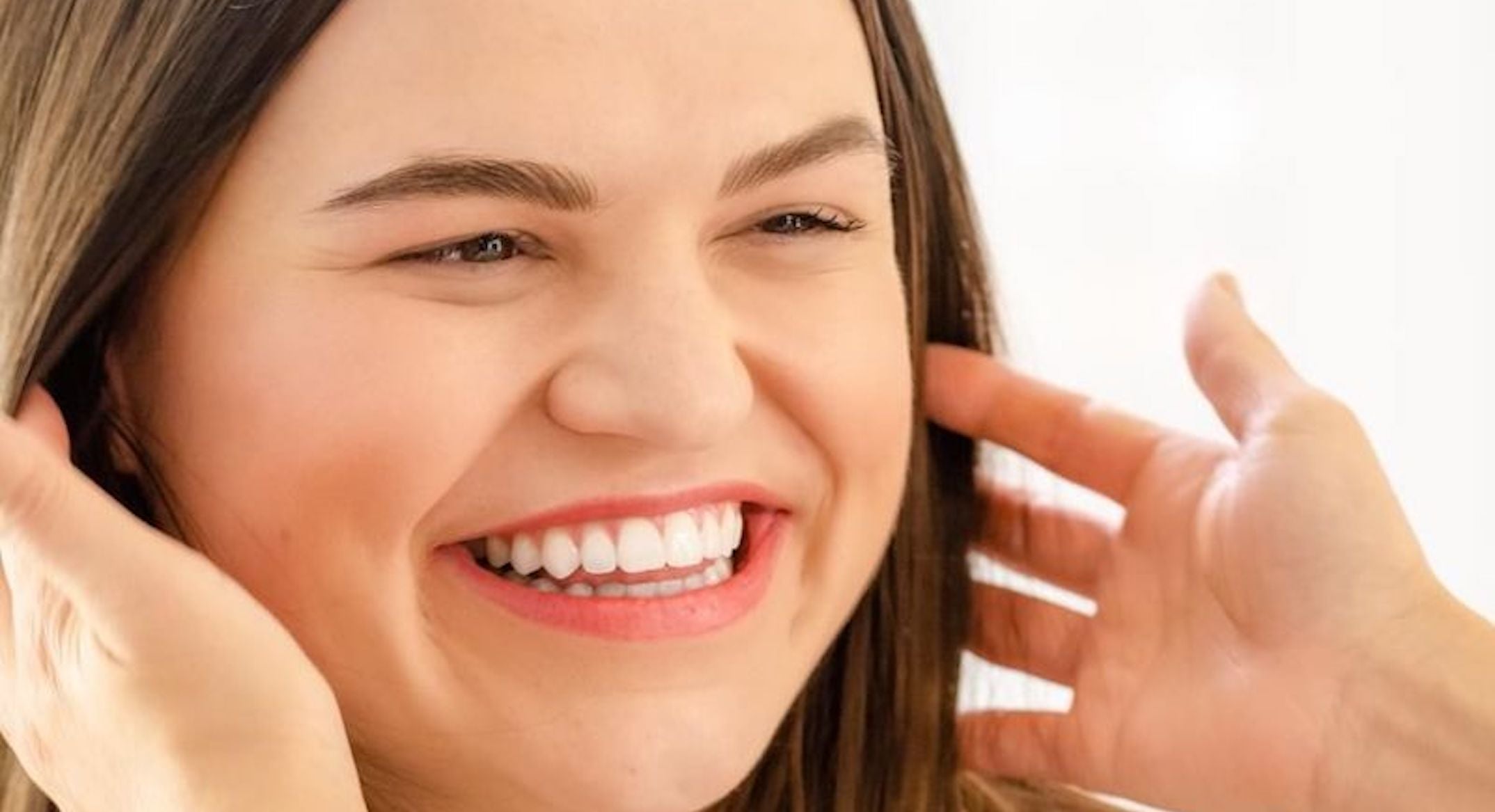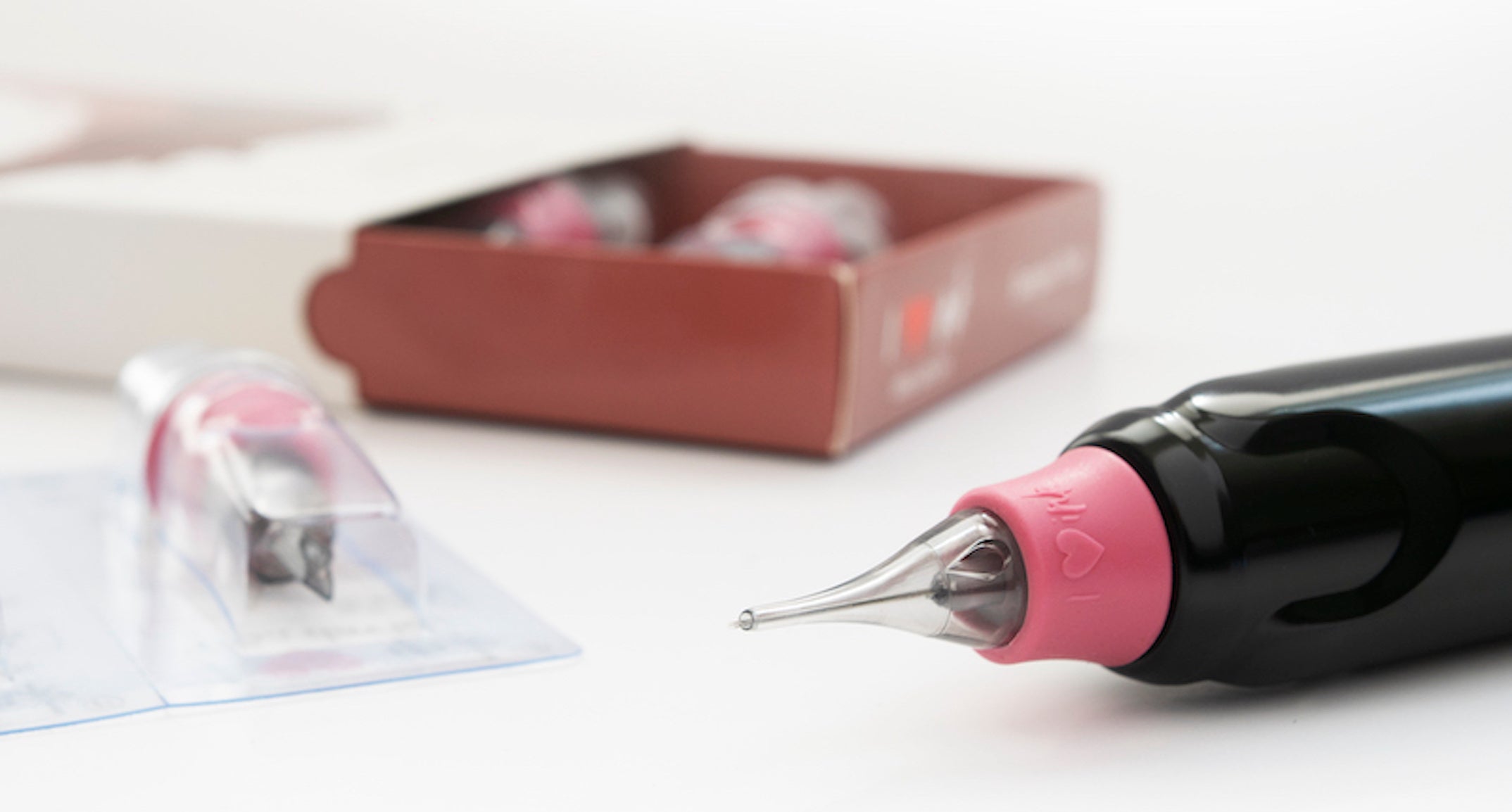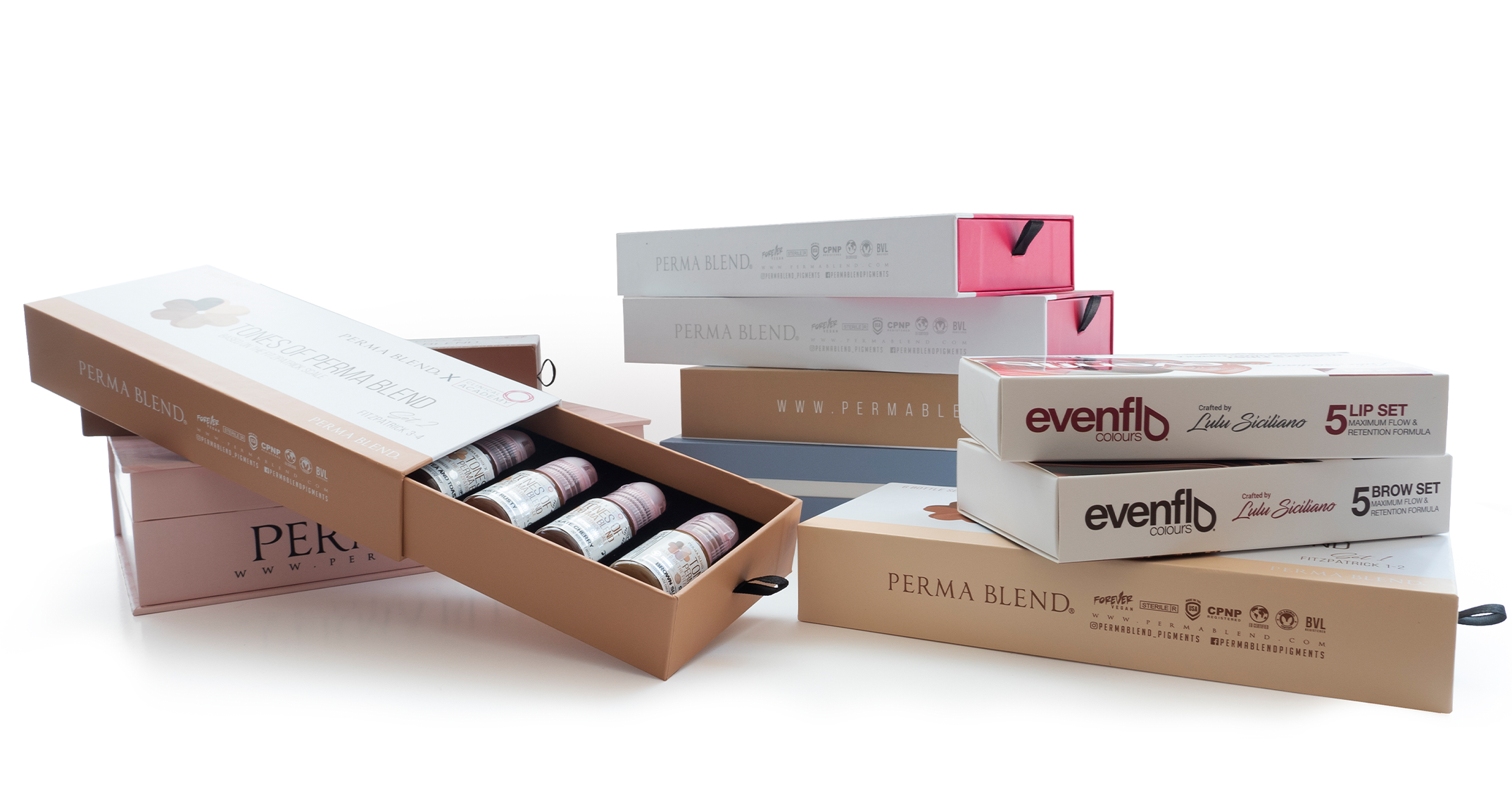
Tina’s Top 6 Tips to Delight Your Clients and Keep Yourself Sane

Oftentimes, there may be a problem of miscommunication or missed expectations.
One of the most common reasons clients can leave unhappy is not fully understanding the beginning- to- end process of permanent makeup. Furthermore, PMU is not for everyone, and it’s ok to say NO if you feel the client is not a suitable candidate.
Here are some top tips that you can implement during the consultation, procedure and follow-up to ensure your client leaves and stays happy, eager to recommend you to their friends and family.
1. Nail you consultation
Expert consultations are SO important to master as an artist.This is where you need to listen carefully to your client’s needs and fears, explain the procedure, talk through any questions they have, discuss brow design and colour, and narrow down ultimately what THEY want to get out of the procedure.
When clients understand everything about the procedure, they are more likely to be happy with the results as they are educated and know what to expect. If you have a website, have all of this information included, but let’s be real - A LOT of clients won’t read it thoroughly, so don’t expect them to know everything, and ensure to go over every important detail during your consultation. Do not skip or underestimate the power of this step!
Pro Tip: To make this even smoother and be the ultimate professional, create a consultation checklist that both you and your client can review and follow to a T. List everything you need to discuss during the consultation, that way you do not miss any important topics: FAQs, Aftercare, Expectations, Healing Process, Design, Colour, Pricing, Maintenance, etc. Spend 15-20 minutes talking about ALL of these things, and then ask your client if they have any further questions.

Read more about Tina’s prep and aftercare steps
2. Be up-front with symmetry and skin challenges
Not every face is symmetrical, so ensuring your client is aware of any facial symmetry challenges upfront is imperative. They may have one brow higher than another, or one higher cheekbone than another. They’ll be relieved to know that you expertly pointed it out and are taking these factors into careful consideration when working on them.As we all know, not each client will have ideal skin for tattooing. The client’s skin (your canvas) is a huge contributing factor in the outcome. Great skin = great outcome, and vice versa. There are various skin factors such as enlarged pores, deep wrinkles, rosacea, acne, sensitive skin, etc. that will not hold the pigment as well as non-sensitive smooth skin. Explain how this will make things challenging for you and that they may not be able to get “A+” results, but instead a “B” results, and get permission if that is acceptable to them. Work together with the client so they can understand these challenges you will face. Most clients can be realistic about this once you frame your approach and set their expectations. They will understand that you’ll do your best with the given condition of their skin. For example, if they want microblading but have sensitive, thin skin that may be prone to bleeding, point that out and recommend powder brow instead for optimal results. Once again, don’t be afraid to say no. Not everyone is a suitable candidate.
 One brow higher than another: natural muscle/skin imbalance can make achieving symmetry more challenging. Making the client aware of this prior to the procedure will ensure they know what to expect. In this case, the client was aware of her muscle imbalance and did not want to go to drastic measures to make it even, so raising the one side while lowering the other to minimize the imbalance was our goal
One brow higher than another: natural muscle/skin imbalance can make achieving symmetry more challenging. Making the client aware of this prior to the procedure will ensure they know what to expect. In this case, the client was aware of her muscle imbalance and did not want to go to drastic measures to make it even, so raising the one side while lowering the other to minimize the imbalance was our goal
3. Design approval


Pro Tip: Use a sticky ruler to double-check your symmetry.
What happens when a client just can’t seem to be happy with your pre-draw? Give them the pencil. You may be thinking, WHAT, are you CRAZY? But this actually allows you both to have a collaborative process which makes them feel like you care, value their opinion and allows them to get comfortable with the procedure. Sometimes it’s just a slight change in the angle or arch, but it allows you to get an understanding of the kind of shape they are most comfortable with. Oftentimes, clients add a few dots here and there and then we can move forward. Or they might attempt, fail to make it any better and revert back to your proposed design.
Read Tina’s Case Study where she addresses how a client liked her brows more arched than what Tina would have done.
4. Manage expectations
This is one of THE MOST IMPORTANT pieces you do not want to forget - What to expect AFTER the procedure. Ensuring your clients know what to expect during the healing phase of a PMU procedure plays a big role in avoiding unhappy clients or clients who are constantly messaging with constant concerns.. I send my clients home with a small pamphlet about what to expect during detailed day-by-day guidance and bullet points. I cover the emotions they may feel, the scabbing phase, the” too dark” phase, the “omg they are gone” phase. We know it can be a roller coaster of emotions, so making sure your client understands this is ALL PART OF THE PROCESS will make your life easier. Infographics and emojis work really well here! Explaining maintenance, touch-ups etc. is also good to share with your clients. Achieving great results can be a multi-session process and not sometimes a touch-up is needed. In addition, set your client’s expectation by informing them to come in for maintenance or a colour boost every 1-2 years. They’ll love that you’re looking after them and have comfort that you’ll be taking care of their brows from now on.Pro Tip: Be sure to book them in for a maintenance appointment before they leave so it’s in their calendar. I always offer $25 off for booking in advance as an incentive….it works and keeps your books full.

Read more about the healing day by day journey.
5. Following up with your client
Following up with your client is another important step to ensure client satisfaction. I always instruct my clients that I will follow up with them 10 days post-procedure via phone. I myself or my assistant will call them (and leave a message most of the time) to express our concern for their satisfaction and follow up on their healing process. Customer service via a phone call is now a rare commodity so set yourself apart by personally calling! They will be so glad that you called.Also, as part of managing client expectations, I instruct them that they will probably dislike or even hate their brows in the first 10 days. WHY? Because they are swollen, dark, scabbing, itchy; just anything but the healed perfection we want. (This is all in my send-home graphic explaining the emotions of the healing process). Whether you send your clients a text, voice note or call them, touch base within 10 days after the procedure to see how they are feeling, address any concerns or questions they may have, and remind them IT'S ALL PART OF THE PROCESS. Don’t wait for the client to reach out with any issues, but instead, always follow up. This is the difference between good customer service and GREAT customer service. Take the time to build that relationship with your client, and remind them to just relax and don’t freak out!
What happens when your client is unhappy when reaching out to follow-up? SEE THAT CLIENT AGAIN in person. Don’t be cheap with your time by trying to do this over the phone or by exchanging pictures. If you want your client to be happy and continue coming back to you or recommend their friends and family, ensuring your client is happy is the answer. Get them back into your chair to be able to understand exactly what it is they are unhappy with, and see exactly how it is healing. DO NOT CHARGE FOR THIS APPOINTMENT. Just book 30 minutes to talk through any concerns they have. Make sure that you see them close to their full healing time as anything before that is hard to assess the healed results.
Pro Tip: Share your client’s before and after pictures with them so they can see the transformation you achieved. A picture is worth a thousand words and they can see themselves in a different light and notice the nuances that they may miss looking in a mirror. Also, they can share the pic with their friends and family to show off their great results.

Text or email before and after pictures to your clients so
they can see their transformation
6. Pricing
Last but not least, PRICING. How do you deal with clients always trying to bargain with your pricing? WRITTEN PRICE LIST. Have your prices written and posted on your website or Instagram shop. You know what you’re worth, and when your prices are listed for your customers, you are less likely to get customers negotiating with you. Think about when you get your nails or facial done-he price list is there and set. No negotiating.What happens when someone is adamant for a discount? One way you can handle this is by saying you are offering a “promo” for a limited time only, and if they book today, they can get 10% off the procedure. You still get the booking and they still get a discount. It’s a win-win situation.
Remember, VALUE yourself and your skills as an artist. Know what you’re worth.
Managing expectations, clear communication and customer service play such a big factor in a successful appointment. I hope these tips that I learned over the years will help you elevate your consultation and improve your client’s satisfaction and retention. Got any tips you’ve learned over the years? Drop in the comments below.




Leave a comment
This site is protected by hCaptcha and the hCaptcha Privacy Policy and Terms of Service apply.